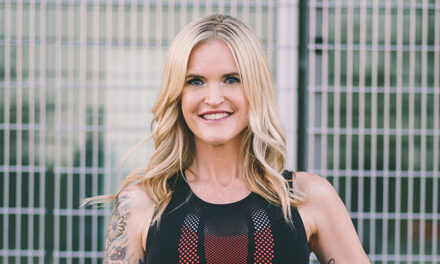By Jessica Ganey (Seebeck)
The latest research shows that 1 in 5 new mothers experience postpartum depression (PPD) and/or anxiety. Despite a growing movement to destigmatize postpartum depression, there is still a great need for more understanding of its complexities. As a mental health clinician working primarily with women, one of the most common phrases I hear is, “PPD is so much more than just blues or feeling down.”
So then, what is it like to have PPD?
Postpartum depression is characterized by some symptoms we might expect, such as feeling sad, depressed, and crying frequently, but it does not stop there. Some women experience intense feelings of anger, rage, and irritability, while others might feel detached and hopeless. It is not even uncommon for someone to have suicidal thoughts. This experience can weigh heavily on a woman as she is also physically and mentally coping with the recovery and processing of labor, delivery, and meeting her newborn. When asking a woman who has endured such a storm in the form of PPD, she might describe it as feeling “broken” or “in a fog.” She might even struggle to find words for the daily feelings of guilt, worry, or terror.
These inner experiences create such a stark dissonance between what they, and society, expect them to feel. Often, new mothers are surprised by the intense experience and emotions and might constantly fight off thoughts like “I’m not supposed to feel this way…” or “Why am I not happy?” These thoughts come in addition to society’s messages reinforcing these doubts. Through exposing the reality of PPD, we develop understanding and empathy, which allows greater capacity for acceptance and less shame. This means we can directly impact the experience of those with PPD by letting them feel heard, seen, and accepted, especially on their lowest, most confusing days when they might otherwise suffer silently.
What can I do for my loved one with PPD?
While it may sound surprisingly simple, your presence is one of the best ways to support your loved one. On top of experiencing depression and perceived isolation, a common experience tied to PPD is shame. So, offer your nonjudgemental, loving presence rather than striving to change or stop their feelings. Let them know you are there if they wish to talk about anything, but that you’re also there to simply be with them, to sit in the room with them, and weather that storm by their side.
I think I might have PPD…
When we experience depression, our nervous systems are in a state of shutdown. No wonder suggestions like going for a walk, getting outside, or reaching out to a friend feel quite literally impossible. If you have a moment where any of those activities sound okay, then yes, absolutely! We know that movement, nature, and supportive people can help tremendously. But if you are feeling stuck in the lowest of lows, try for something we call a “state shift.” Its focus is not on stopping the feeling or connecting with the feeling; it’s merely about shifting into a different state, even if just for a moment. Any amount helps. Some examples of state-shifting actions include showering (hot or cold), stepping outside and noticing the air or the feeling of the ground, or perhaps listening to very upbeat music.
As a therapist and a postpartum mother myself, I know these words might only scratch the surface of your experience. No matter where you are in your journey, though, I encourage you to view yourself with a gaze of grace and validation. What you are enduring is real, it is hard, and you are not alone in this storm.
IG: @ jessicaganeylcsw Jessicaganey.com
Jessica Ganey (Seebeck) is a Licensed Clinical Social Worker and 200HR Registered Yoga Teacher with advanced training and expertise in trauma-informed, holistic approaches to healing.







